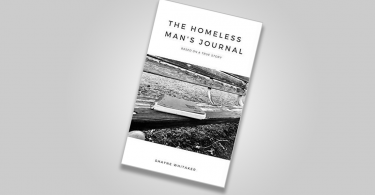The internet holds a powerful potential for social movements and campaigns. One woman wielding that power is Lucy-Anne Holmes, founder of NoMorePage3. Following the success of her campaign, Holmes has now shared her experience in the book How to Start a Revolution
How to start a revolution
Throughout the book Holmes shares key tips and advice on starting your own campaign, while telling the story of NoMorePage3 (NMP3). It’s honest and insightful, and a must-read for supporters and future campaigners alike.
Oh I so love this picture!! Thank you @TransworldBooks for publishing How to Start a Revolution today!! @NoMorePage3 pic.twitter.com/6AKMksWAvp
— Lucy-Anne Holmes (@LucyAnneHolmes) March 26, 2015
The NMP3 campaign was born in the summer of 2012, a key moment in time because of the London Olympics.
“During the Olympics I remember getting a copy of The Sun and being really curious about my response to the Page 3 image that day,” Holmes said. “It really alarmed me. I’d been reading about men and women athletes, feeling inspired by the Olympics, and then you get this soft porn image. It felt like a slap in the face. I couldn’t stop thinking about it and how that was the largest image of a woman in the whole paper. What does that say about women’s place in society?”
This initial shock made Holmes delve deeper, asking more questions about the representation of women.
“I was writing a blog at the time about female sexuality and my own journey,” she said. “I’d been talking about my relationship to my body and had mentioned Page 3, so it was obviously somewhere in my consciousness but not enough to not buy The Sun.”
Ultimately this was the problem for a lot of people. The image of Page 3 had become commonplace, audiences were desensitized to it, and it took NMP3 to make them start questioning the reasons behind the page and the implications it held.
Pitching passion against profit
In How to Start a Revolution, Holmes writes: “You only need one thing to start a campaign and it isn’t cash, experience, a thick skin or the ability to use WordPress. It’s passion.”
She describes challenging the editors of The Sun as pitching ‘passion against profit’ and passion is certainly the more powerful of the two. Holmes found her own passion shared by others as the supporters grew and the NMP3 team came together.
“There’s something really incredible about meeting up with people and connecting, putting your passion into something bigger than you,” she said. “We were all united and working together even though we were based in different places.”
Throughout the campaign, the internet proved a key part, from blogs and social media, to video experiments. This allowed people from far and wide, sharing the same passion to unite against Page 3.
The new faces of feminism
NoMorePage3 found itself part of a feminist uprising, a growing social activism, which was unexpected for Holmes and many others.
“I wasn’t part of any feminist community and I’d never campaigned before,” she said. “I was pretty much discovering feminism and that was really exciting.”
As the campaign progressed, it grew bigger and gained a greater following, alongside the success of other campaigns such as the Everyday Sexism project.
“We were seeing a lot more journalists wanting to write about the issues and big buzz online with social media wanting to talk about issues of feminism and inequality,” Holmes said. “There was this wave of feminism fuelled by social media which NoMorePage3 was definitely a part of.”
As successful as the social media aspects of such campaigns are, Holmes believes that they would still be possible without the internet: “Look at what the suffragettes did without social media,” she said.
Advice for future campaigners
What strikes you throughout the book, and indeed speaking with Holmes herself, is the nature of the campaign. The NoMorePage3 platform was “warm and welcoming rather than formal, intimidating or angry,” Holmes writes.
NMP3 might have flicked a switch, creating an interest in feminism, politics and activism, but throughout it all Holmes held onto her sense of self. People were encouraged to join the campaign, not threatened by it, (except for those it was going up against of course!), something that is easy to lose in the campaign environment.
The support and backing left Holmes breathless, and proud of what they had achieved. From its launch they had started a conversation, which just grew and grew, empowering people who followed the campaign and shared their passion.
Holmes describes campaigning as “chaotic” but that it meant she learnt to trust her instincts. She stresses that you can say no, that “it’s important to rest and look after yourself,” and that chances are you’ll come back stronger with new ideas.
This echoes the advice of her father, shared in How to Start a Revolution, who said: “Look at it more as a marathon than a sprint.”
The future of NoMorePage3
If The Sun had continued to fight back against the campaign, the next step would have been more direct actions, with NoMorePage3 just getting bigger and braver, said Holmes: “We had some really exciting and creative ideas.”
For now, NMP3 will continue as a “platform for challenging media sexism.” Keep checking back and keep supporting, Holmes urges, revealing news of another book in the future. While you wait, grab a copy of How to Start a Revolution for an inspiring read that will make you want to take your own passions and use them as a driving force for change.
Lucy-Anne Holmes tells us how her revolution started, but how you start your own revolution is down to you.








